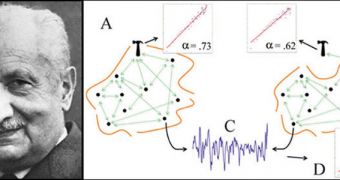A German philosopher proposed a long time ago that the tools people used tended to be perceived as being an integrated part of their personality. Until now, there has been no way for scientists to test the validity of this statement, but researchers managed recently to devise a deceptively simple test to determine whether this is true or not. They managed to determine that, even though we have less to do with tools than people a century or two ago had, we still tend to consider common objects, such as our computers and our mobile phones, as being a part of who we are, Wired reports.
In the new experiments, researchers asked a number of participants to use a computer mouse for a series of tasks. The test was deceivingly simple, the team said. The mouse was rigged to function inappropriately, while the group looked at what effect this had on the brain of participants. They learned that the ensuing disruption in attention were not at all superficial, but rather seemed to go all the way down to the roots of cognition. Details of the work appear in the March 9 issue of a journal published by the Public Library of Science (PLoS).
“The person and the various parts of their brain and the mouse and the monitor are so tightly intertwined that they’re just one thing. The tool isn’t separate from you. It’s part of you,” says Franklin & Marshall College cognitive scientist Anthony Chemero. He devised the study to confirm or infirm Martin Heidegger's hypothesis. The great philosopher said that we tend to look directly through our tools, and focus rather on the task we have to do. He drew an interesting parallel between the use of a tool such as a hammer and the use of one's fingers. We do not think how to move our fingers when tying shoelaces, but rather focus on getting the job done. This idea has had considerable influence on the fields of artificial intelligence and cognitive science research.
“The thing that does the thinking is bigger than your biological body. You’re so tightly coupled to the tools you use that they’re literally part of you as a thinking, behaving thing,” the expert adds. He also highlights the fact that the new work would seem to indicate that malfunctions and delays in our tools could be construed as discontinuities in our selves. “Yes, that’s exactly what it is,” Chemero concludes.

 14 DAY TRIAL //
14 DAY TRIAL //